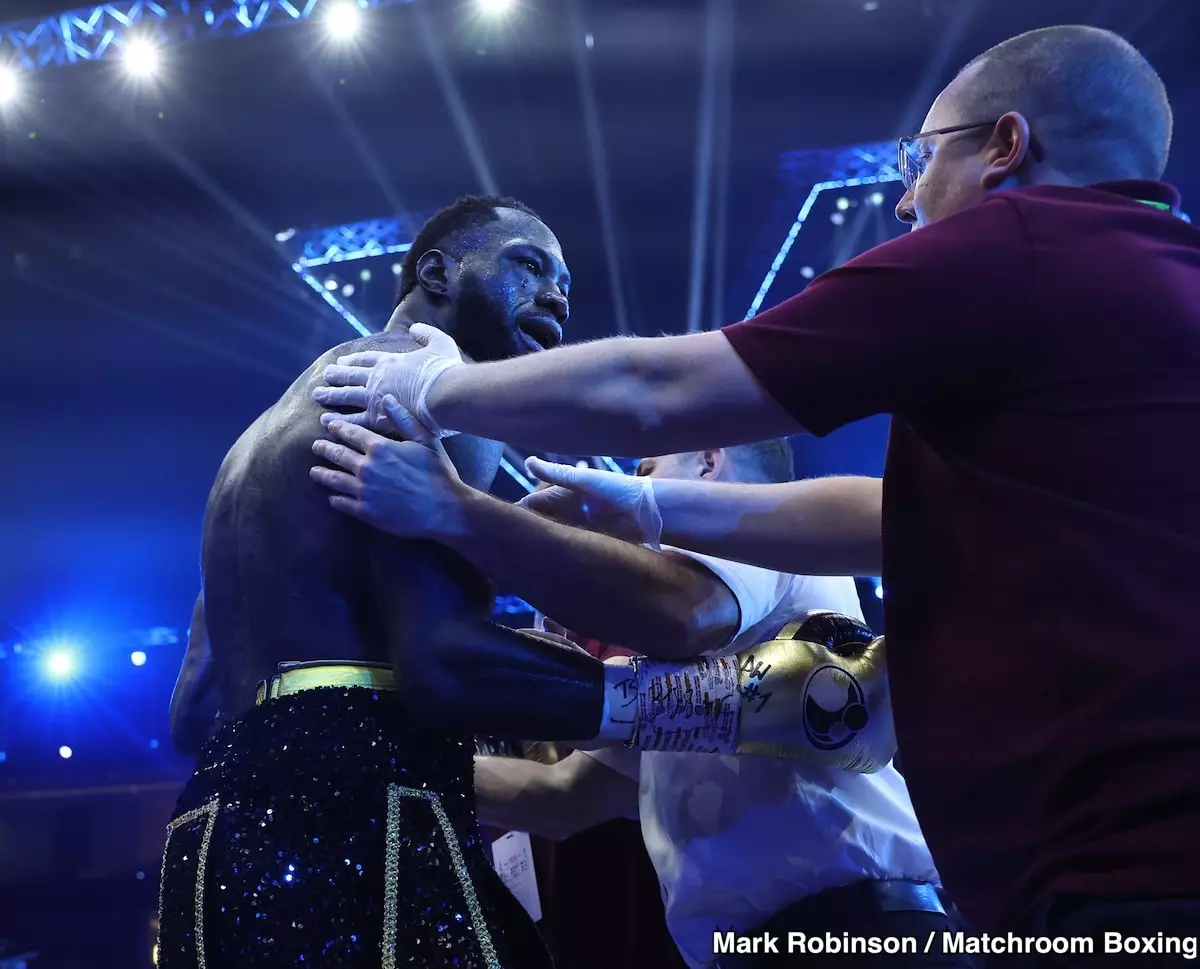In an unexpected twist, former heavyweight champion Deontay Wilder is set to return to the boxing ring on June 27. However, rather than gracing arenas like Las Vegas or Madison Square Garden, Wilder will step into a ring in Wichita, Kansas. This choice of location speaks volumes about the state of Wilder’s career. After experiencing a series of disheartening defeats, this fight against Tyrrell Herndon—a 37-year-old fighter with a record marred by five losses—seems more like a detour than a strategic move aimed at reclaiming glory. Promoters Nelson Lopez and Joshua Chasse may tout optimism in Wilder’s potential comeback, but the decision to stage this fight in a less glamorous locale conjures questions about Wilder’s relevance in the sport.
Fading Aura of the Bronze Bomber
Wilder’s impressive knockout record of 42 KOs out of 43 wins once instilled fear in opponents, but his recent performances have tarnished that fearsome reputation. His last victory dates back over a year, creating a notable gap that has only amplified doubts regarding his skills. Having suffered consecutive defeats, notably against Joseph Parker and Zhilei Zhang—both of which showcased a striking lack of competitiveness—Wilder’s once-dominant presence in the heavyweight division feels all but deflated. The thrill that once enveloped his fights has dissipated, leaving behind an athlete trying to navigate the remnants of his legacy.
Questionable Matchmaking
The decision to have Wilder face Herndon, who is more known for his defeats than his victories, raises eyebrows. Herndon’s journey as a boxer shows a record peppered with losses against lesser-known opponents. Chasse’s claim that this fight represents “Wilder’s legacy reloaded” feels more like a desperate attempt to reframe a tumultuous trajectory. It is evident that this bout could easily devolve into a mere exhibition rather than a serious challenge aimed at reigniting Wilder’s potential for greatness. If the aim is merely to secure a win and entice fans back into supporting Wilder, the boxing community deserves to question whether this matchup truly benefits the sport.
The Illusion of a Comeback
Framing this fight as a comeback is nothing short of a misrepresentation. The allure of a “comeback” tends to suggest an athlete striving to return to form, yet Wilder’s situation is far more complicated. Indeed, he might posses the raw power to end a fight with a single punch, but that alone does not equate to athletic resurgence. After all, it is unlikely that a quick knockout against an opponent like Herndon will yield any significant insights into Wilder’s future trajectory in boxing. The bout may serve as a confidence booster or a financial opportunity but will hardly convince critics or fans that the ex-champion is poised to reclaim his former throne.
Strategic Decisions and Future Implications
Wilder’s team may insist that this fight is the first step on a path back to contention, but they must tread carefully. In sports, especially in boxing, narratives can be as crucial as the measurable skills within the ring. Wilder’s decision to engage in less significant matchups may generate short-term excitement but raise long-term worries about the sustainability of his career. As fans, we are left questioning whether Wilder’s heart still beats for glory or if he is simply biding his time, searching for a final star on his legacy before the curtain inevitably falls.
In the grand scheme, this isn’t about revisiting old glories but instead prolonging a career that seems more focused on cashing out than claiming titles. Whether this strategy will achieve its goals remains uncertain; one thing is clear—Wilder’s journey is at a pivotal crossroads, and how he navigates this fragile path will determine the legacy he leaves behind. As the boxing world watches closely, the outcome on June 27 will undoubtedly serve as an important chapter written in the annals of Wilder’s career, albeit not the resounding reawakening many have hoped for.

